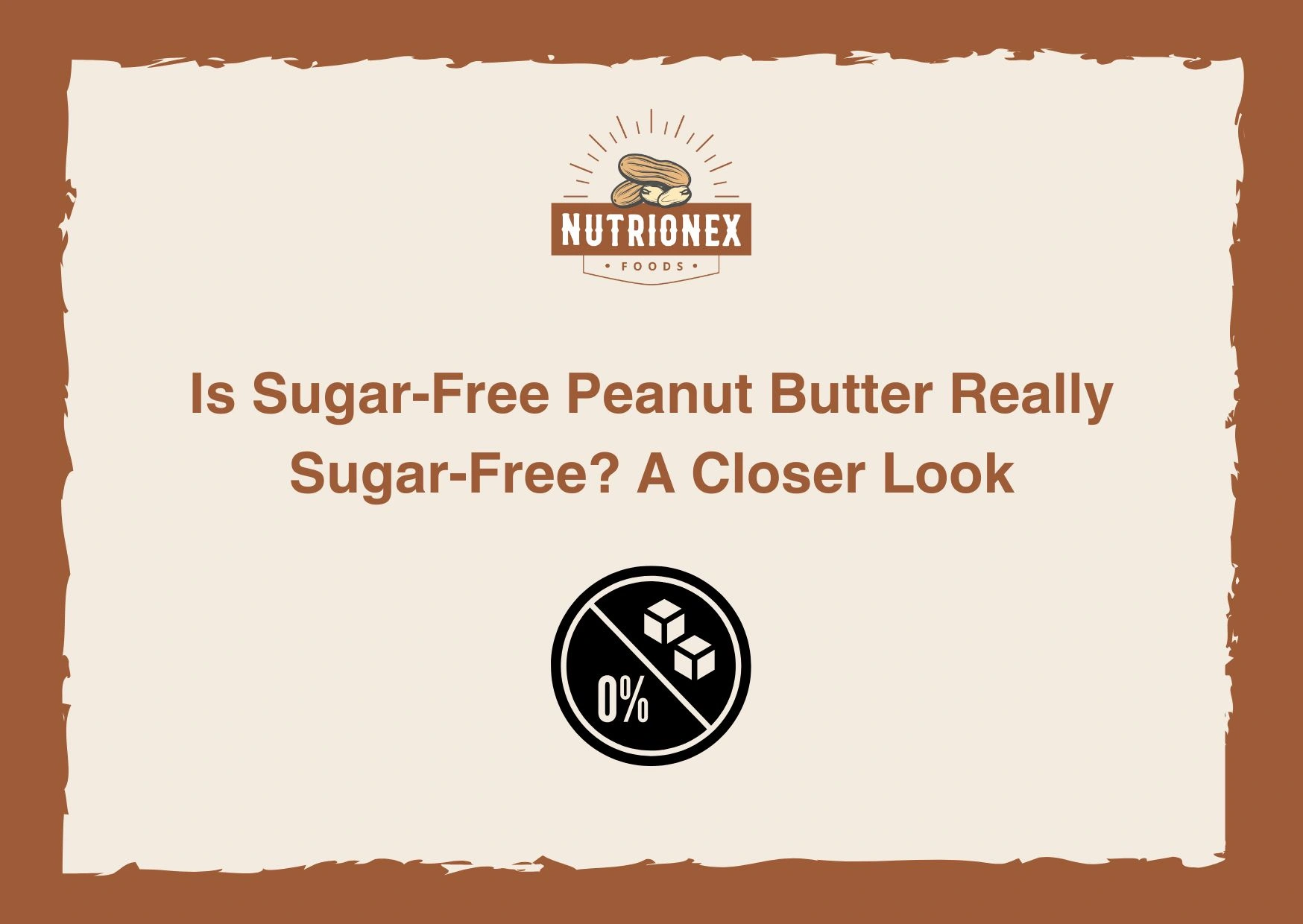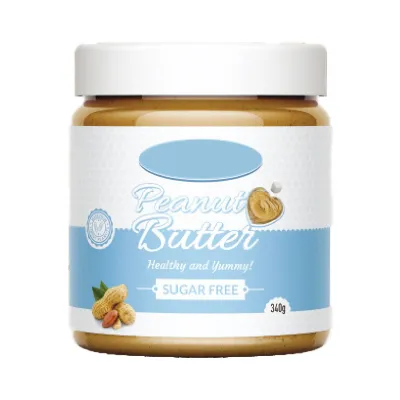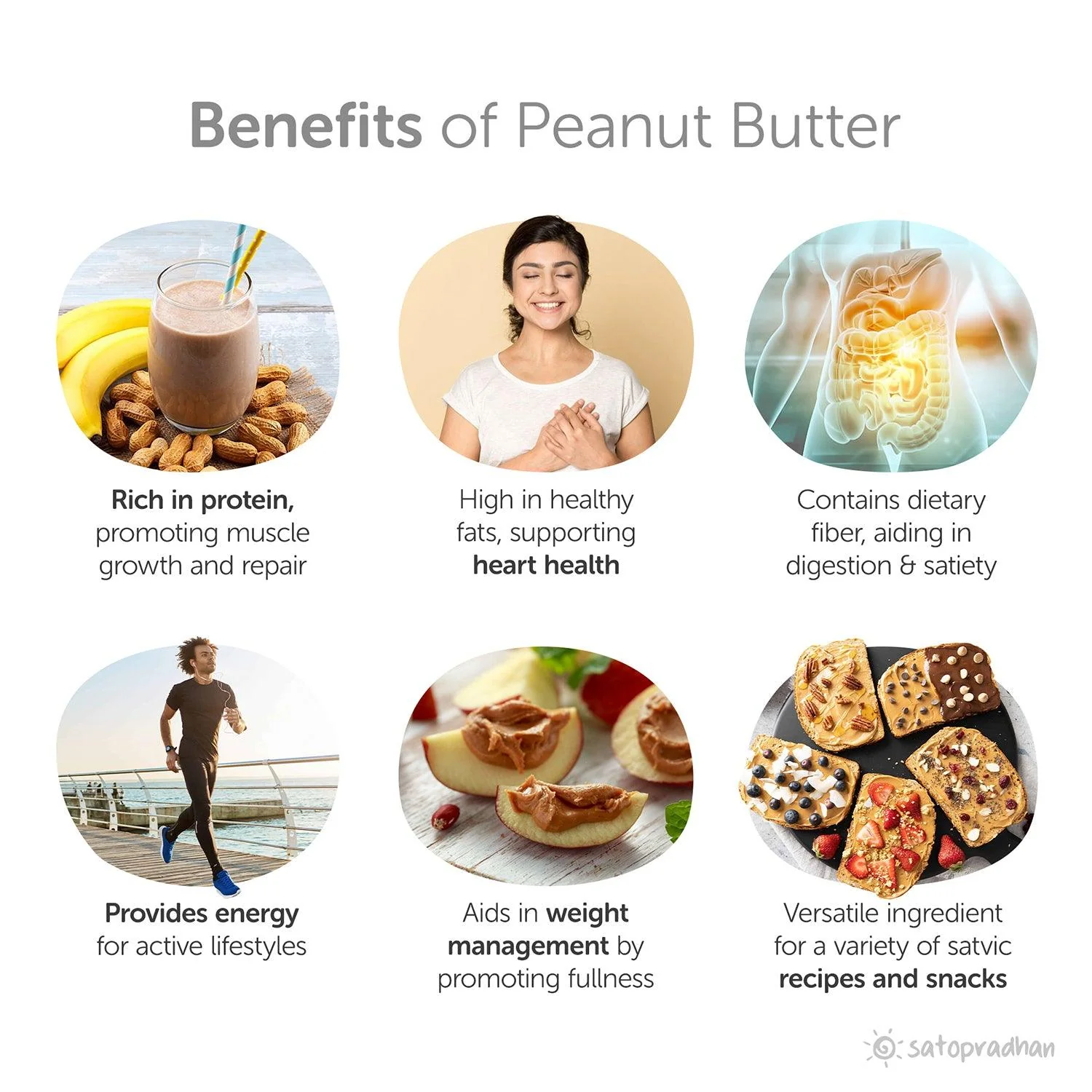
Is Sugar-Free Peanut Butter Really Sugar-Free? A Closer Look
Sugar-free peanut butter is a variation of traditional peanut butter that contains little to no added sugar. While regular peanut butter often contains added sugar to enhance flavor, sugar-free varieties focus on reducing or eliminating this ingredient. The goal is to offer a healthier alternative, especially for people managing diabetes, following low-carb diets, or simply trying to reduce sugar consumption.
The key ingredients in sugar-free peanut butter usually include peanuts, oils (often palm or peanut oil), and salt. However, to compensate for the lack of sugar, some brands may use artificial or natural sweeteners like stevia, monk fruit, or sugar alcohols such as erythritol. This creates a product that is labeled as "sugar-free" but may still contain other forms of sweetness.
How Peanut Butter is Made
To understand sugar-free peanut butter, it’s important to first know how regular peanut butter is made. The traditional process involves Roasted peanuts, removing their skins, and grinding them into a smooth or chunky paste. In conventional peanut butter, sugar, salt, and oils are added to improve flavor, texture, and shelf life.
Many commercial peanut butters contain hydrogenated oils and added sugars to maintain a creamy texture and to prevent separation. These ingredients contribute to the sweetness and spreadability that many people expect from their peanut butter.
.webp)
Differences in Sugar-Free Varieties
The process for making sugar-free peanut butter is largely the same, with one crucial difference:
The absence of added sugars. Brands may use high-quality peanuts, salt, and oil without including any sugar or sweeteners. This results in a product that relies solely on the Natural flavors of peanuts Butter, which can sometimes taste less sweet than conventional versions. In some cases, as mentioned earlier, natural or artificial sweeteners are introduced to retain some level of sweetness without adding sugar.
Natural vs. Artificial Sweeteners in Peanut Butter
Not all sugar-free peanut butter is created equal. While some brands opt to keep their product as natural as possible, others may use artificial sweeteners to maintain taste. Natural sweeteners like stevia or monk fruit are often preferred by health-conscious consumers because they’re derived from plants and have little to no effect on blood sugar levels. On the other hand, artificial sweeteners like sucralose or aspartame may have a more processed origin, which can raise concerns for those looking to avoid synthetic ingredients.
Taste Differences Between Regular and Sugar-Free Peanut Butter
Another potential downside is the flavor difference. Peanut butter without added sugars or artificial sweeteners may taste less sweet or even slightly bitter compared to its regular counterpart. This change in flavor can be an adjustment for consumers who are accustomed to the sweetness of traditional peanut butter. Some people enjoy the more natural taste of sugar-free versions, while others may miss the sweetness. Trying a few different brands might help you find one that suits your taste preferences.
Hidden Sources of Sugars in "Sugar-Free" Peanut Butter
Even though sugar-free peanut butter doesn’t contain added sugars, peanuts themselves naturally contain small amounts of sugars. Peanuts, like many other plant-based foods, have natural carbohydrates, including sugars like sucrose. While the amount is minimal, it’s important to note that “sugar-free” doesn’t necessarily mean the complete absence of all sugars—it typically refers to the absence of added sugars.
Popular Brand of Sugar-Free Peanut Butter

Nutrionex stands out in the sugar-free peanut butter market by offering a product that’s not only delicious but also health-conscious. With a commitment to using high-quality, natural ingredients, Nutrionex’s sugar-free peanut butter contains no added sugars or artificial additives. It’s made with 100% peanuts, ensuring a rich, authentic peanut taste and a smooth texture that peanut butter enthusiasts love. Perfect for those looking to reduce their sugar intake without sacrificing flavor, Nutrionex’s sugar-free peanut butter is a wholesome choice for a nutritious snack or meal addition.
Health Benefits of Sugar-Free Peanut Butter

Lower Calorie Content
One of the main reasons people turn to sugar-free peanut butter is for its reduced calorie content. Since sugar is high in calories, removing it from peanut butter can help lower the overall caloric value. This is especially beneficial for individuals watching their weight or trying to manage their daily caloric intake. Sugar-free peanut butter can offer a guilt-free way to enjoy this delicious spread without worrying about the extra sugar load.
Rich in Protein and Healthy Fats
Even without added sugars, peanut butter remains an excellent source of protein and healthy fats. In fact, peanuts are naturally rich in monounsaturated fats, which can support heart health by helping to reduce bad cholesterol levels. Sugar-free peanut butter also contains fiber, which aids in digestion, making it a nutrient-dense snack option. The high protein content helps to maintain energy levels and supports muscle repair, making it a great choice for athletes or those with an active lifestyle.
Weighing the Pros and Cons
Whether sugar-free peanut butter is healthier depends on individual dietary goals. On the one hand, it eliminates unnecessary added sugars, making it a better choice for people looking to reduce sugar intake, manage diabetes, or follow low-carb diets. On the other hand, if the product includes artificial sweeteners or preservatives, it may introduce other potential health concerns. The healthiest options are typically those that contain minimal ingredients—just peanuts and a bit of salt. These all-natural peanut butters offer the most nutritional value without compromising on health.
Sugar-Free Peanut Butter Fits Into a Healthy Diet
Sugar-free peanut butter can be an excellent addition to a balanced diet, especially if you’re mindful of the type you choose. It works well as a source of healthy fats and protein, making it ideal for snacks, smoothies, or as part of a meal. However, it's important to consume it in moderation, as even sugar-free peanut butter can be high in calories. Pair it with whole grains, fruits, or vegetables to create a well-rounded, nutritious snack.
Conclusion
In summary, sugar-free peanut butter by Nutrionex Foods and other comparable brands are free from added sugars but still contain natural sugars that come from the peanuts or from the other ingredients. Look for ingredient listings and nutrition facts to know its full nutrition profile. Sugar-free peanut butter might be a healthier choice if intake of sugar is reduced, yet extreme consumption is still necessary. There are good selections of quality sugar-free peanut butter from Nutrionex Foods that can empower consumers to make the right dietary decision.
FAQs
1. Can sugar-free peanut butter cause digestive issues?
Some sugar-free peanut butters contain sugar alcohols, which can cause digestive discomfort, such as bloating or gas, for sensitive individuals. Opting for versions with no added sweeteners can help avoid this issue.
2. Is sugar-free peanut butter suitable for diabetics?
Yes, sugar-free peanut butter can be a good option for diabetics, as it contains little to no added sugars. However, it’s still important to monitor serving sizes due to the fat and calorie content.
3. Does sugar-free peanut butter taste different from regular peanut butter?
Sugar-free peanut butter often has a more natural peanut flavor without the added sweetness of regular versions. Some find it less sweet or slightly bitter, but it can be an acquired taste.
4. Are there any preservatives in sugar-free peanut butter?
Some sugar-free peanut butters contain preservatives or stabilizers to enhance shelf life and maintain texture. However, natural and organic varieties typically avoid these additives.
5. What’s the best way to store sugar-free peanut butter?
Sugar-free peanut butter, especially natural or homemade versions, should be stored in the refrigerator to prevent oil separation and spoilage. Be sure to stir it occasionally if oils separate.
